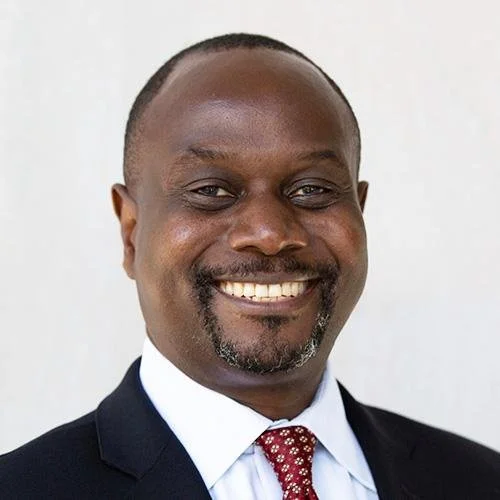The Crisis of the Collective: How Democracy Swung from "We" to "I"
Mvemba Dizolele, Thought Leader. Human Security
Democracy, once seen as the cornerstone of collective progress, now stands at a crossroads. The global landscape is shifting—marked by rising populism, political polarization, and a creeping sense of disillusionment. In a recent episode of Let's Talk Democracy, I sat down with Vemba Dizolele of the Center for Strategic and International Studies to unpack the question: Why is democracy under attack?
What emerged from our conversation wasn’t just a political analysis—it was a sobering reflection on a deeper, more insidious crisis: a fundamental shift in values. Democracy’s decline isn't just procedural; it's philosophical. We’ve moved from a world of shared ideals to one where the individual reigns supreme.
The Death of Idealism and the Rise of "I"
Mvemba Dizolele paints the modern era as a world in flux—one that has, perhaps permanently, abandoned the idealism of past generations. In the 1960s and 70s, collective ideologies like socialism, communism, and even American-style liberal capitalism were grounded in the idea of building a better world together.
Today, that collective spirit has been eclipsed by a culture of individualism—where the guiding ethos is "get rich or die trying," and moral frameworks are secondary to personal gain. Whether in politics, business, or civic life, the emphasis has shifted from “What can we build together?” to “What can I get for myself?”
From the Berlin Wall to Market Rule
We identified a turning point in 1989—the fall of the Berlin Wall. It symbolized not just the end of communism but the unchallenged ascent of market capitalism, as pushed by figures like Ronald Reagan and Margaret Thatcher.
At first, this seemed like a win for democracy and freedom. But it came with consequences:
The Rise of the Oligarchs: Privatization, especially in post-Soviet states and developing nations, created a new class of ultra-wealthy elites whose fortunes remain tied to political power. Public resources became private empires.
The Compartmentalized Citizen: In the West, profit maximization became the organizing principle of society. Consumer protections eroded. Social safety nets frayed. Today, we live in a world where airlines charge for water and governments bail out corporations before citizens.
The collective “we” was no longer profitable.
The Far-Right Contradiction
One of the most dangerous developments in this new era is the rise of far-right and nationalist movements. Ironically, many of these movements are driven by voters who feel left behind—those who have, in many ways, suffered most from unregulated capitalism.
But instead of challenging the extractive economic systems responsible for growing inequality, these movements redirect blame—scapegoating immigrants, minorities, and outsiders for social and economic woes.
This is not governance. It’s ideological manipulation masquerading as policy.
True governance is rooted in the social contract—the idea that a government exists to serve and uplift its people. But when the pursuit of maximum profit is framed as if it is the social contract, democracy collapses under its own contradictions:
In the West: we see a hollowed-out middle class, crumbling infrastructure, and declining public health and education.
In the Global South: debt and austerity—often imposed by global financial institutions—leave countries with little room to invest in their own people.
Where Are the Servant Leaders?
Perhaps the most alarming symptom of this ideological decay is the global crisis of leadership. Across democracies, political leaders increasingly operate on the same “get rich” model as economic elites—treating public office not as a platform for service, but as a personal business opportunity.
In this vacuum of servant leadership, democracy falters. The machinery of governance grinds on, but the moral core—the “why” behind the “how”—is lost.
Can We Swing Back to "We"?
Today’s democratic crisis is not just a failure of institutions. It’s a deeper, more existential crisis—a half-revolution where the old order won’t fully die, and a humane, inclusive future can’t fully be born.
The pendulum has swung too far toward the isolated self. To restore democracy—not just as a system of government, but as a shared way of life—we must ask ourselves:
What values must we fight for to reclaim the collective?
What kind of leadership will it take to prioritize people over profit?
What does a real, functioning “we” look like in the 21st century?
These questions are no longer philosophical—they are political, urgent, and essential. The future of democracy depends on how we answer them.
Listen to the full episode of Let’s Talk Democracy with Mvemba Dizolele (https://letstalkdemocracy.alitu.com/episode/2d2050a1-8e2b-4b80-9c8b-de4161ee8915), and join the conversation about reclaiming the “we” in democracy.

